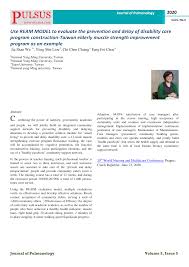The disability services Care Load Assessment is a measure of your ability to meet the requirements for an eligible caregiver. It can be used to determine whether you are an in-home or out-of-home caregiver. If you are applying to be an in-home caretaker for an elderly sibling, parent, or family member, your Disability Care Load assessment would consider the number of caregivers you currently pay for and how much time you have available to complete your tasks if you were forced to leave your loved one. You can also include a Needs Assessment to assess basic needs that a person might not require in daily living activities. A Needs Assessment might include communication, dressing ability, and eating ability.
Disability Care Workforce Benefit
- Your Disability Care Load Assessment will help you determine your earning potential if you are a caregiver and your employer does not pay you. The NDIS Auburn, covers many of the additional benefits that qualified disability care providers would receive, including hospital stays, home health aid services, round-the clock nursing care, personal support, transportation, and other expenses. In certain cases, a disability insurance plan may cover the cost additional equipment such as hearing aids, wheelchairs artificial disability services Melbourne, medication machine, and other costly necessities. The Disability Insurance program will only cover the expenses if you have provided services that are considered essential. Your extra help could result to potential losses under the DIP. Check with your policy for details about whether additional help that you will be paying is covered.
Disability Care Workforce Benefit
If your disability is not severe enough to prevent your ability to work, you might request a Disability Care Load Assessment to determine the age at which you can retire. If your disability is severe enough, it may be in your best interest to retire earlier, because Social Security will take some of your wages away if your disability is deemed severe enough. The federal appeals court usually sets the disability retirement age. However, most appeals court set this age as sixty-five years, which is the age most people begin receiving disability payments. For severely disabled persons, the Disability Retirement Alter may be increased to one-hundred per cent.

Once you have determined your disability retirement age, contact a child support lawyer. If you live in a state that uses a shared parenting system, your child support payments will likely be determined by the custody court based on whether your spouse can afford to make the payments or if the parent that can’t make the payments is in the home. If you live in a different state, your child support payments will be determined by a family law judge based on the needs of the child and the ability of each parent to make the payments. After you file your application with the family court, your caseworker will start investigating your child custody and visitation issues.
After receiving the application, the caseworker will interview the father and mother to collect all relevant information. The caseworker will prepare a list for both parents to sign as well as any supporting documentation, such as pay slips and doctor’s notes. Once all documentation has been received, the disability caseworker will review the application to determine if you are eligible for a foster carer payment.
After your application is approved, you will be eligible for a Disability Care Payment. The court will determine the amount you receive as a Disability Care Payout (DCP). This will be based upon your income and other financial factors. The amount of your Disability Care Payment (DPC) will be determined by the provider. This will take into account the age of your child at the date of the claim, their medical requirements at the time and their current living circumstances. If the court determines that you are eligible to receive a Disability Care Payment you will be awarded the money you have requested. The provider will use these funds to cover the cost of providing the care to your child.
